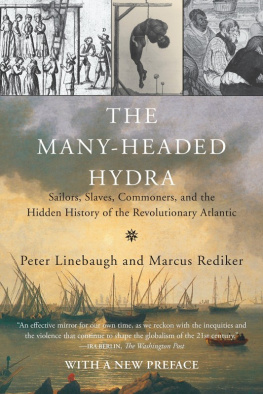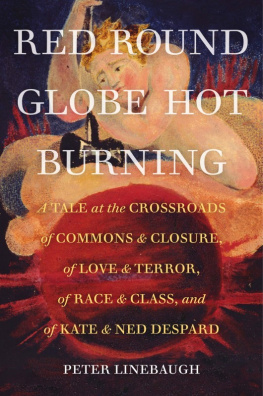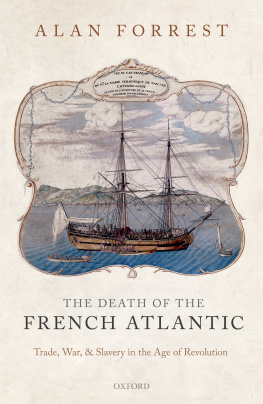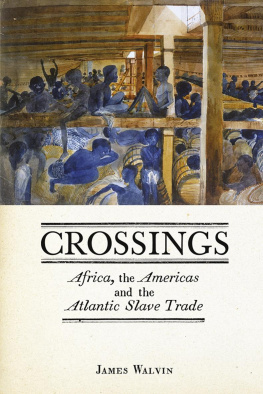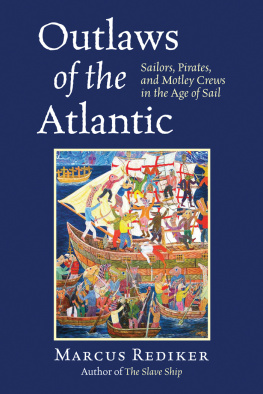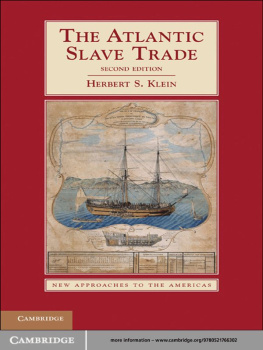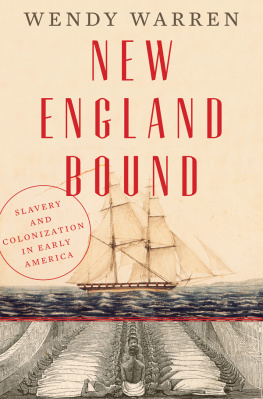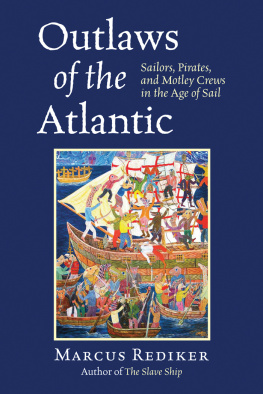
To the memory of Christopher & Bridget Hill
Preface to the Second Edition

I N HIS POEM A Worker Reads History (1935), Bertolt Brecht asked, Who built the seven gates of Thebes? He answered, famously, The books are filled with the names of kings. Then he wondered, subversively, But was it kings who hauled the craggy blocks of stone?
Brecht ranged across the planet, from Europe to Latin America, the Middle East, India, China, and Africa, imagining how a motley crew of workers might figure in a history long dominated by great men and monuments to their vainglory. We followed in Brechts footsteps in writing this history of Atlantic workers, emphasizing sailors and slaves. We begin this new edition by saluting Brecht, champion of history from below and author of its anthem.
The book combines the African American, English, and American traditions of history from below. W. E. B. Du Bois taught us to study the color line and the insidious ideology of white supremacy. He published Black Reconstruction in America in the same year of Brechts poem, writing: The emancipation of man is the emancipation of labor and the emancipation of labor is the freeing of that basic majority of workers who are yellow, brown and black. C. L. R. James, in The Black Jacobins: Toussaint LOuverture and the San Domingo Revolution, published in 1938, explained the first victorious workers revolution in modern history, adding that what the plantation slaves began, the European urban masses completed. George Rawick introduced to us the notion of self-activity. After his twenty volumes of the Slave Narratives, it was impossible not to think of the slave as a historical actor. Walter Rodney always held forth the supreme example of the scholar, theorist, and activist. He urged a radical break with the international capitalist system. The African American tradition of history from below, necessarily concerned with slavery and its abolition, adopted an Atlantic perspective.
A strength of English history from below was a notion of the working class that was theoretically deep and historically specific, such as E. P. Thompson provided in The Making of the English Working Class (1963). The specificity brought a methodological corollaryarchival discovery. Because the ruling class has been the keeper of the archive, documents must be held up to a satanic light and read backwards, wrote Thompson. A second strength of the Anglo tradition of history from below was its emphasis on alternative ideas to those of the dominating class. Of the radical ideas of the English Revolution described by Christopher Hill in The World Turned Upside Down (1972), those that have signified most to us have been antinomianism and the commons. Indeed we originally conceived this book as a way to link these two famous studies, by Hill and Thompson, respectively, and to explore the era between the 1640s and the 1790s.
In America, Brechts poem had the declaratory effect of a manifesto. Jesse Lemisch abridged A Worker Reads History to begin his 1968 essay The American Revolution as Seen from the Bottom Up. Herbert G. Gutman and his colleagues at the American Social History Project used the poem to introduce and name their two-volume history of workers in America, Who Built America? (1989). This history from below challenged the Cold Wars chronicle of great men, championed the inclusion of diverse historical subjects, and cracked the conservative consensus that was dominant in American historical writing. In remarks made at Kent State University in 1998, Staughton Lynd said he relied on oral history from the bottom up to explain that the history of poor and working people is a history of dreams, of reaping, of unexpected divinity, and of memorable death.
These traditions have tended, as Paul Gilroy notes, to be volkish in their approaches, whether Afrocentric, Anglocentric, or American exceptionalist. They have been found wanting, first, for parochialism or insularity; second, for disregarding the wageless; and third, for privileging Protestantism and neglecting the struggles of Catholic workers. They tend in some incarnations to be histories from the lower middle up, concentrating on artisans and people of small property. Production not reproduction was their sphere, so questions were raised by the womens movement and the new history it demanded. We also drew on liberation theology, a vital and largely Hispanic approach to history and politics from below.
Some of these questions we posed in our earlier work, Between the Devil and the Deep Blue Sea (1987) and The London Hanged (1991), whose similarity is expressed by the proverb The sea and the gallows refuse none. The former book analyzed the struggles of sailors and port workers, providing an alternative to the artisanal labor history of the nineteenth century and moving the history of the proletariat back to an earlier time of capitalism. The latter book expatiated on the criminalization that was a necessary complement to the waging of labor. Both books concerned the uprooted. We crossed the Atlantic in opposite directions. Marcus had been in Philadelphia, where social history meant not history from below but social science, so he crossed eastward to refresh himself at the fountain of English radical historians. Peter, satiated by a long draught from the cup of Anglotude, crossed westward to search for groundings in the black revolution. We met and shared a determination to study and learn from C. L. R. James. We discovered that our passage was part of a long-standing historical pattern from America to England and back, via the Caribbean.
The book had its beginning in the period 19791981, when Margaret Thatcher had already begun to attack British steelworkers and miners, and Ronald Reagan Americas air-traffic controllers. Union busting was the order of the day as free-market, neoliberal policies were unleashed upon the planet. Various struggles from belowin Brixton, Philadelphia, Long Kesh prison, and Central Americawere on our minds as we organized a conference through the Philadelphia Center for Early American Studies, at the University of Pennsylvania. One of the goals of The World Turned Upside Down: Working People in England and America, 16601790 was to discover continuities and connections between peoples movements that had been artificially separated by nationalist histories.
Over the next twenty years we found in the historical records that we studied an arresting number and variety of references to Hercules and the many-headed Hydra, a variant of a near-universal combat myth in which a demigod fights a monstrous enemy, defeats chaos, and creates nomos, or social order. Classically educated Atlantic rulers used the metaphor of Hercules battling the Hydra to explain to themselves their bloody, historic project of building a new capitalist economy. We wondered how did the metaphor work in the early modern Atlantic, and what did the heads of the hydra mean? How would we interpret them? Did they express the evolving division of labor? the producers of different commodities? the practitioners of different skills? the workers of different regions? Or did they stand for different creatures of gender, of race, of ethnicity, of geography, or of type or of species? The first interpretation suggested an economistic hydra, roughly parallel to the social division of labor among various workers. The second interpretation led to a biological hydra, a taxonomy of diverse organisms. The former had undertones of class, the latter of race. The ambiguity would prove useful.
Next page

